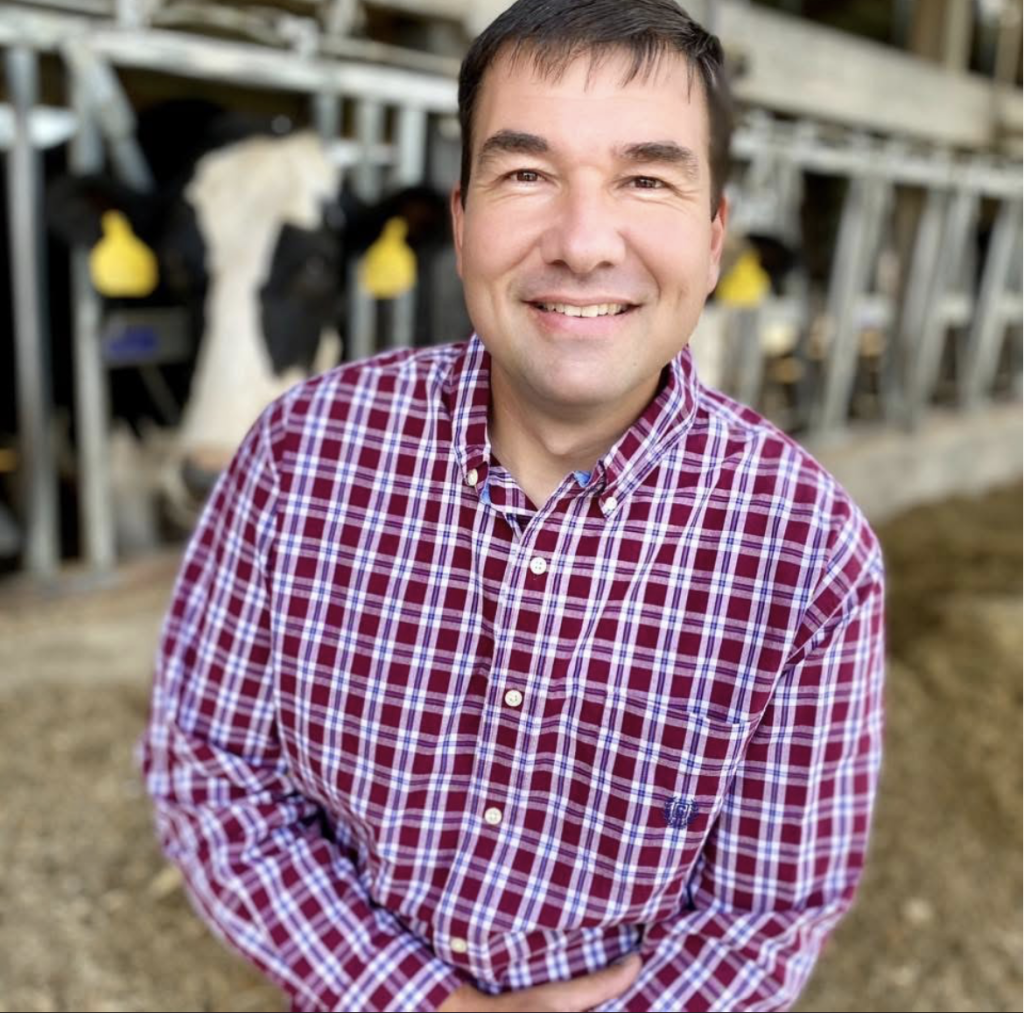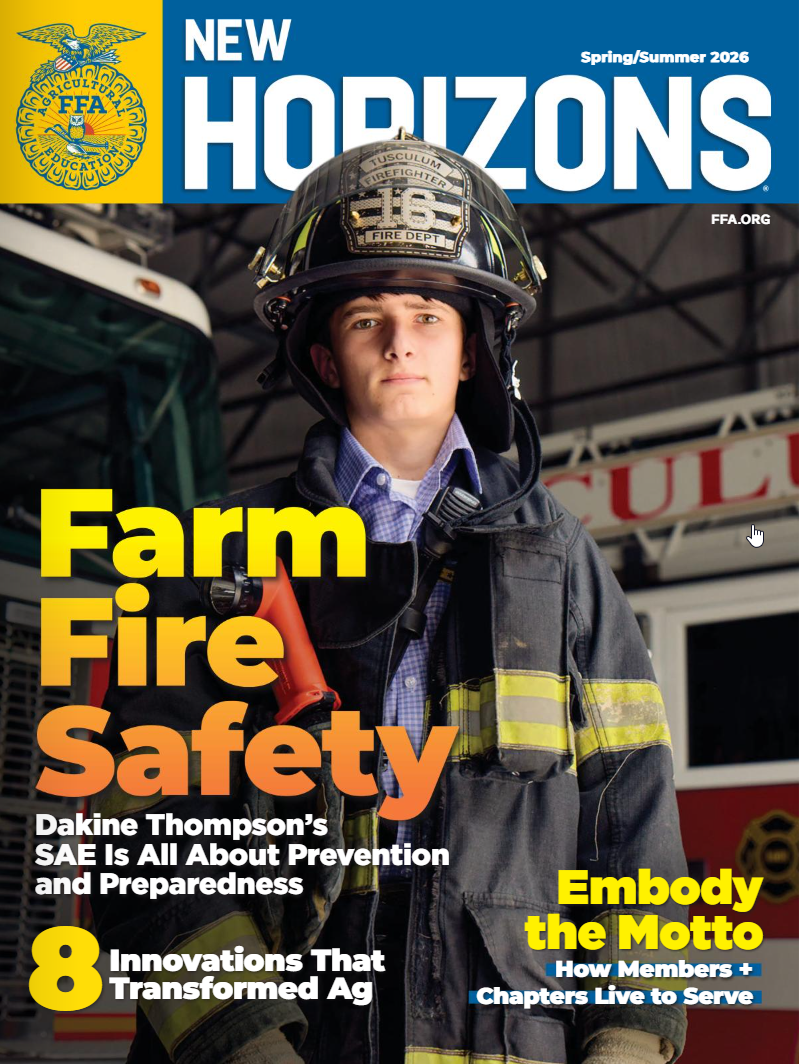Lifelong Advocate Chris Pollack Continues to Make an Impact

Chris Pollack at the Pollack-Vu Dairy.
A Hidden Issue in Agriculture
Outside of Ripon, Wis., is the home of Pollack-Vu Dairy. The dairy milks around 140 Holstein cattle, harvests 950 acres and serves the Ripon FFA Chapter and surrounding community. One of its owners is Chris Pollack, a fifth-generation farmer and Ripon FFA Alumnus.
In 2015, Green Lake County and The Green Lake Association held a field day related to conservation. Since farmers work so closely with the environment, this was an amazing opportunity for Pollack to attend and learn more.
Although it isn’t intentional, farmers contribute to around 90% of the nitrates in groundwater within Wisconsin. Nitrates are the biggest contaminant, with more than 10% of private wells exceeding the health standard (10 mg/L). If you drink contaminated water, it can lead to health issues. These include cancer, “blue baby syndrome” and birth defects. Nitrate contamination causes a great economic issue by making people spend more on water treatment and health care. It directly affects the fishing industry, which loses millions of dollars every year because of this matter.
Addressing the Task at Hand
Pollack has a passion to change this problem and make a forever impact. Along with protecting groundwater, he can reduce his farm’s carbon footprint. Shortly after the field day, Pollack got involved with the Upper Fox River Valley Demonstration Network. This association consists of farmers collaborating and sharing how they work to reduce their carbon footprint and soil runoff.
“That helps give us each a chance to learn from each other about our experiences, and how we can try to achieve these goals,” Pollack says.
Some steps Pollack-Vu Dairy took to address nitrate contamination are reducing and eliminating tillage, as well as planting cover crops. Reducing tillage increases soil infiltration and reduces runoff that happens when water can’t be absorbed. Cover crops help keep nitrogen in the soil, which improves future crops that are planted in the same soil. It also decreases runoff and absorbs much of the nitrates that would be otherwise be found in the runoff.
How FFA Impacts Chris Pollack
As an alumnus, FFA continues to affect Pollack. His inspiration to join the Fondu lac County Farm Bureau was his time in the organization. “So, I was fortunate,” he says. “Much like FFA, Farm Bureau does a discussion meet, which I participated in and was the national runner-up in 2014.”
Pollack also enjoys being a mentor to students because he strives to provide the opportunities that he had through FFA. “Whether that’s helping somebody that’s interested in doing discussion meet, judging a discussion meet or helping to provide educational opportunities in cooperation with the FFA,” he says. “Or, the tour we do in the spring with Food for America. It might just be working with students on a state degree or the FFA Alumni chapter to help fundraise for local FFA events.”
Above all, Pollack serves as a mentor to students, serves our environment and so much more. He embodies the FFA motto, and is an inspiration to everyone, regardless of their age or agricultural background.


